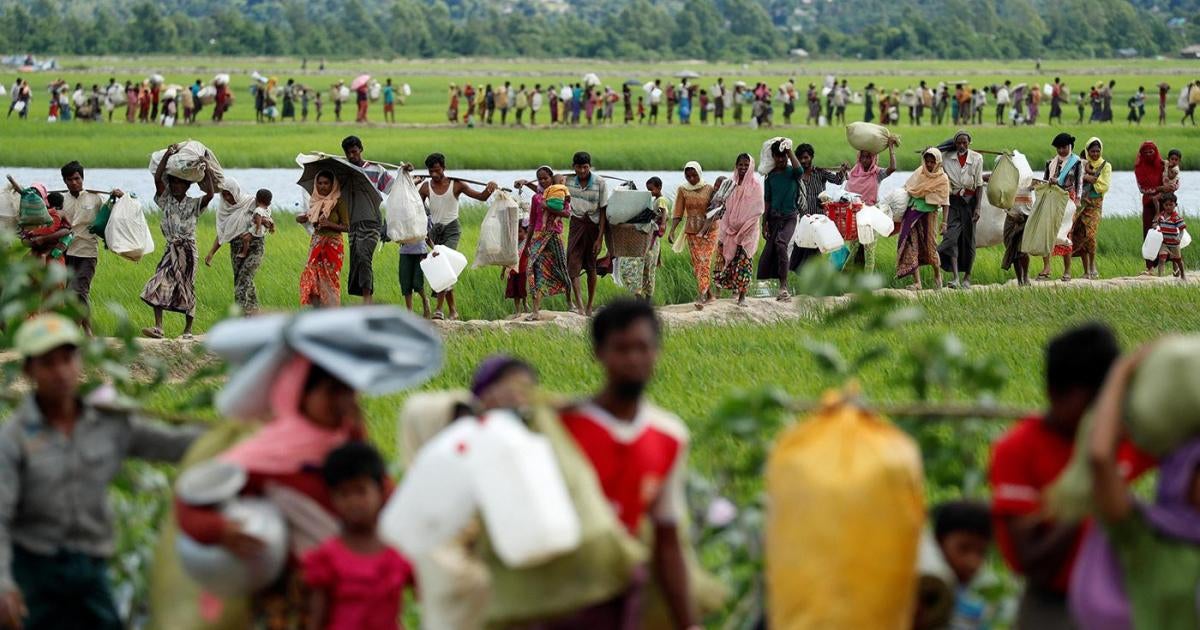
As the United Nations convenes a crucial High-Level Conference on the plight of Rohingya Muslims on September 30, 2025, Human Rights Watch is calling on member states to take urgent action to protect this vulnerable population from continued persecution and violence. The Rohingya, who have faced relentless threats in Myanmar, Bangladesh, and across Asia, are in desperate need of international support and a clear plan for their future safety and dignity.
The conference aims to propose a “comprehensive, innovative, and concrete plan” to address the Rohingya crisis, emphasizing the need for conditions that ensure the voluntary, safe, and dignified return of Rohingya refugees to their homes. However, Human Rights Watch highlights the stark reality: current conditions in Myanmar, particularly amid escalating conflict and human rights abuses, make safe returns impossible.
“The situation for Rohingya in Myanmar’s Rakhine State is dire,” stated Louis Charbonneau, UN director at Human Rights Watch. “The Rohingya are subjected to apartheid and other crimes against humanity, and it is essential that UN member states recognize that forcing them to return under these circumstances would endanger their lives and violate their fundamental rights.”
Since the military coup in February 2021, the Rohingya have found themselves caught in a violent crossfire between the Myanmar junta and ethnic Arakan Army forces. Human Rights Watch has documented egregious abuses perpetrated by both sides, including extrajudicial killings, widespread arson, and forced recruitment. The Arakan Army, which has gained control over much of Rakhine State, has escalated its oppressive measures against the Rohingya, leading to a mass exodus. Since early 2024, over 150,000 Rohingya have fled to Bangladesh seeking refuge.
Many of the Rohingya refugees interviewed by Human Rights Watch express a deep desire to return to their homeland. However, they insist that any return must guarantee their safety, freedom, and the right to obtain the citizenship that has long been denied to them.
Acknowledging the harsh realities on the ground, Human Rights Watch urges UN member states to resist endorsing the immediate repatriation of Rohingya refugees to Myanmar. Instead, they should condemn the ongoing abuses by the Myanmar military and the Arakan Army, support cross-border humanitarian aid efforts, and pressure the Arakan Army to improve living conditions and allow freedom of movement for the Rohingya.
In Bangladesh, over one million Rohingya refugees living in the Cox’s Bazar camps face a myriad of challenges, including severe restrictions, cuts to humanitarian aid, and increasing violence. Reports of abductions, sexual violence, and extortion by armed groups have created a climate of fear among the refugees. The Bangladeshi authorities have imposed restrictions on education and livelihoods, further stripping the Rohingya of their dignity and independence. As the influx of new arrivals continues and foreign aid dwindles, humanitarian organizations are warning of worsening conditions, with critical shortages of food, water, and medical assistance.
Human Rights Watch calls on UN member states to increase funding to address the needs of the refugee population and to provide additional support to Bangladesh for hosting these communities. This assistance must be contingent on the Bangladeshi government lifting restrictions on refugees and improving their living conditions. Moreover, there is a pressing need for governments to expand resettlement opportunities or alternative visas for the most vulnerable and at-risk Rohingya refugees.
Despite ongoing accountability efforts at the International Criminal Court (ICC) and the International Court of Justice (ICJ), Myanmar’s military has not faced adequate repercussions for its atrocities. The UN Security Council has failed to translate its December 2022 resolution on Myanmar into meaningful action, even as the junta’s attacks on civilians have intensified.
The establishment of civilian democratic rule and justice for the military’s crimes are essential for upholding the human rights of the Rohingya and the broader population of Myanmar. The roots of the Rohingya crisis and the ongoing atrocities can be traced back to the military’s long history of impunity.
Human Rights Watch urges member states to outline specific accountability measures against the junta for its blatant disregard of international calls for compliance. The military’s blockages of humanitarian aid violate both UN Security Council resolutions and the ASEAN five-point consensus. Furthermore, it has ignored binding provisional measures ordered by the ICJ under the Genocide Convention.
The upcoming conference provides an opportunity to galvanize support for a Security Council resolution that would refer the situation in Myanmar to the ICC and impose a global arms embargo in alignment with the June 2021 General Assembly resolution aimed at preventing arms sales to the junta. The council must also enforce the provisional measures mandated by the ICJ.
“The UN Security Council must break its silence on Myanmar and take decisive action following the conference,” Charbonneau emphasized. “Finding sustainable solutions for the Rohingya and addressing the root causes of the crisis depend on holding the Myanmar military accountable for its actions.”


